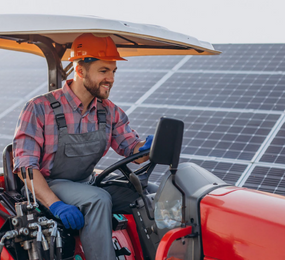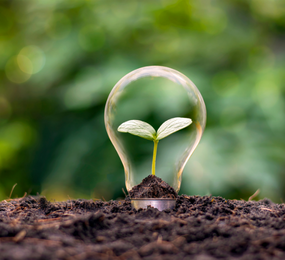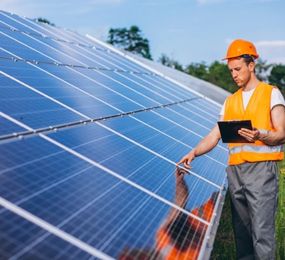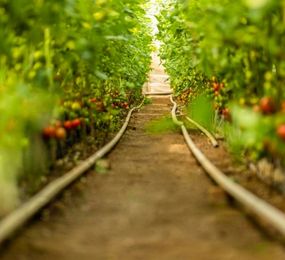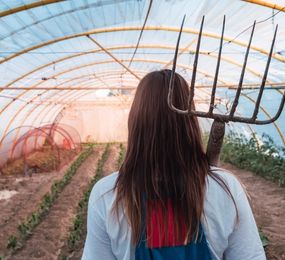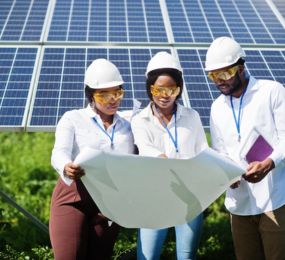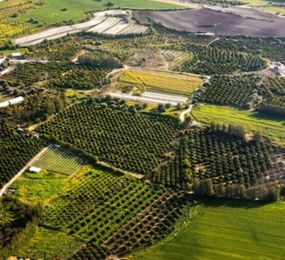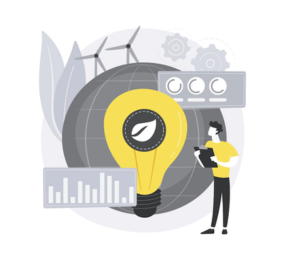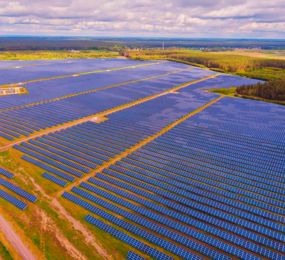As the 2nd Annual AgriVoltaics Europe conference approaches, anticipation is growing among industry leaders, researchers, policymakers, and enthusiasts eager to explore the cutting-edge realm of agrivoltaics—the integration of solar panels with agricultural practices. Our esteemed speaker is set to captivate the audience with a presentation on "The Practice of Growing Crops Underneath Solar Panels," shedding light on the transformative potential of this innovative approach. Join us on 8th - 9th November 2023 at the Steigenberger Airport Hotel in Amsterdam, Netherlands, and be part of the dynamic discussions and collaborations that will shape the future of agrivoltaics.
One of the greatest challenges facing agriculture today is the availability of arable land. By growing crops underneath solar panels, farmers can maximise land utilisation and address this challenge effectively. The dual use of land for both energy generation and crop production optimises resources, allowing farmers to generate renewable energy while continuing their agricultural activities. This practice is especially advantageous in regions with limited land availability, unlocking new opportunities for sustainable agriculture and clean energy production.
Shading Benefits for Crops
Solar panels, while capturing sunlight for energy generation, also provide a unique shading effect that can benefit crops. The controlled shading created by solar panels helps mitigate temperature extremes, reducing heat stress on plants and minimising water evaporation from the soil. This microclimate regulation can enhance crop quality, increase yields, and extend growing seasons. The practice of growing crops underneath solar panels not only generates clean energy but also offers an additional layer of protection and support for agricultural production.
Water Conservation and Irrigation Efficiency
Water scarcity is a significant concern in many regions across the globe, and efficient water management in agriculture is crucial. Growing crops underneath solar panels offers the advantage of reducing water evaporation by providing shade, thus conserving water resources. The shade created by solar panels can also help optimise irrigation efficiency by reducing the water requirements of crops. This sustainable approach not only supports water conservation efforts but also contributes to the overall resilience of agricultural systems.
Crop Selection and Compatibility
The practice of growing crops underneath solar panels requires careful consideration of crop selection and compatibility. Certain crops are better suited for this system due to their ability to thrive in shaded conditions. Leafy greens, herbs, and certain vegetables have shown promising results when grown underneath solar panels. Additionally, crops with lower height profiles and shorter growth cycles are ideal, as they can adapt to the limited vertical space available under the solar panels. Exploring the optimal crop-solar panel combinations can maximise both energy generation and crop productivity.
Enhancing Biodiversity and Ecosystem Services
Agrivoltaics has the potential to enhance biodiversity and promote ecosystem services within agricultural landscapes. The installation of solar panels creates new habitats and refuge spaces for beneficial insects, birds, and other wildlife, fostering biodiversity conservation efforts. The integration of renewable energy generation and sustainable agriculture promotes soil health, enhances nutrient cycling, and reduces the reliance on synthetic inputs. This symbiotic relationship between energy production and biodiversity conservation can contribute to the overall sustainability and resilience of agricultural systems.
The 2nd Annual AgriVoltaics Europe conference promises to be a platform for visionary discussions and groundbreaking insights into the practice of growing crops underneath solar panels. Our esteemed speaker's presentation on this topic will unlock the transformative potential of agrivoltaics, exploring its benefits in maximizing land utilization, providing shading benefits for crops, conserving water resources, promoting biodiversity, and advancing sustainable agriculture. Join us on 8th - 9th November 2023 at the Steigenberger Airport Hotel in Amsterdam, Netherlands, and be part of the visionary conversations that will shape the future of AgriVoltaics.
To register or learn more about the Forum please check here:http://bit.ly/3kR0v2R.
For more information and group participation, contact us: [email protected]


